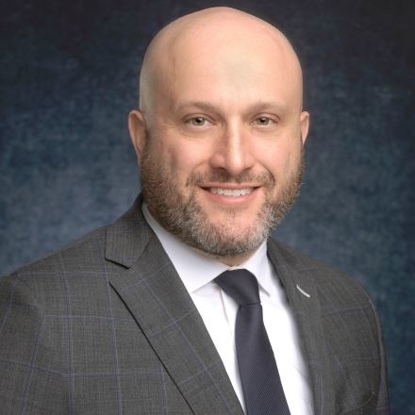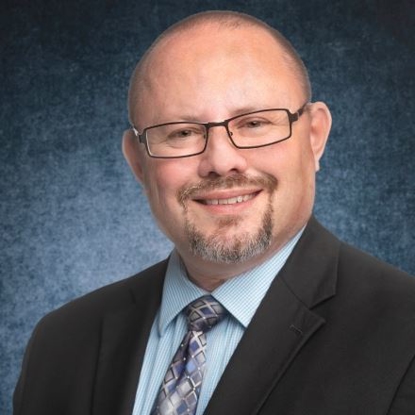
Newport News Spinal Cord Injury Lawyers
Helping Accident Victims Get Compensation for Life-Changing Injuries
When you are involved in an accident, you may suffer a spinal cord injury. These injuries can cause severe damage to your body and can greatly affect your ability to live a normal life. While you may have been lucky enough to survive the accident, the life you once knew may be forever changed.
Kalfus & Nachman PC can help you seek the financial compensation you need to get your life back on track. Our team of Norfolk spinal cord injury lawyers can help you file a claim for damages, including medical expenses, lost wages, and pain and suffering. Let us fight for a favorable settlement, while you make the best possible recovery from injury.
No matter what you are going through, we are here to help. Call our team at (855) 880-8163 or use our online contact form to get started.
What is a Spinal Cord Injury?
A spinal cord injury (SCI) is a serious medical condition that occurs when there is damage to the spinal cord, resulting in a loss of function and sensation below the level of the injury. The spinal cord is a crucial part of the central nervous system, responsible for transmitting messages between the brain and the rest of the body. When it gets injured, it can lead to various degrees of impairment, ranging from partial loss of function to complete paralysis.
Common types of spinal cord injuries include:
- Incomplete Spinal Cord Injury: In this type of injury, some function and sensation are retained below the level of the injury. It means that there is still some communication between the brain and the body below the injury site. Incomplete SCIs can vary in severity and may lead to varying degrees of impairment.
- Complete Spinal Cord Injury: A complete SCI results in the loss of all sensory and motor function below the level of the injury. There is a total absence of communication between the brain and the body below the injury site. This often leads to paralysis and loss of sensation.
- Tetraplegia (Quadriplegia): Tetraplegia refers to a spinal cord injury that occurs in the cervical (neck) region of the spine. It typically leads to paralysis or significant loss of function in both the upper and lower limbs, affecting the arms, hands, trunk, and legs. The extent of impairment can vary depending on the specific level of the injury.
- Paraplegia: Paraplegia occurs when the spinal cord injury is in the thoracic, lumbar, or sacral region of the spine, typically below the level of the shoulders. Individuals with paraplegia experience paralysis or significant loss of function in the lower half of their body, including the legs.
- Central Cord Syndrome: This type of SCI is often associated with damage to the center of the spinal cord, usually in the cervical region. It can result in more severe motor deficits in the upper limbs than in the lower limbs. This condition can vary in severity and can lead to weakness, sensory changes, and loss of function.
- Brown-Sequard Syndrome: This is a rare form of SCI where only one side of the spinal cord is damaged. It can result in a combination of symptoms, such as paralysis on one side of the body and loss of sensation on the other side.
- Anterior Cord Syndrome: In this type of SCI, the front portion of the spinal cord is injured, often resulting in a loss of motor function and sensation while preserving some sensation to temperature and pain.
Spinal cord injuries are often caused by traumatic incidents, such as motor vehicle accidents, workplace accidents, violence, and sports activities. On the other hand, these injuries can also be caused by non-traumatic events (e.g., spinal tumors, degenerative disc disease, inflammatory conditions, and infections) and medical procedures/complications.
How Do You Prove Liability in a Spinal Cord Injury Case?
In order to win your case, you will need to prove that the defendant is liable for your injuries. This can be difficult to do and requires a thorough investigation of the accident.
In a spinal cord injury case, you will need to prove that the defendant's negligence caused the accident that caused your injuries:
- You will need to prove that the defendant was negligent and that their negligence caused the accident.
- You will also need to prove that the accident caused your spinal cord injury.
- You will need to prove that your spinal cord injury caused you to suffer damages.
Victims of spinal cord injuries often face astronomical medical bills, ongoing rehabilitation costs, lost wages, and a significantly reduced quality of life.
Our primary goal is to seek maximum compensation for our clients, which may include:
- Medical Expenses: Coverage for past and future medical treatments, surgeries, medications, and therapies.
- Lost Income: Compensation for the income you've lost due to your injury, as well as potential future earnings.
- Pain and Suffering: Damages for the physical and emotional pain caused by the injury.
- Rehabilitation Costs: Funding for ongoing rehabilitation, assistive devices, and adaptive housing modifications.
- Home Care: Compensation for in-home care and assistance, if necessary.
- Loss of Enjoyment of Life: Damages for the loss of the ability to engage in activities you once enjoyed.
- Wrongful Death: In cases of fatal spinal cord injuries, we can pursue a wrongful death claim on behalf of the victim's family.
If you or a loved one has suffered a spinal cord injury in Newport News, don't face the legal battles alone. The experienced spinal cord injury lawyers at Kalfus & Nachman PC are here to advocate for your rights and help you obtain the compensation you need to rebuild your life.
Contact us today at (855) 880-8163 to request a free case review.

How Is Kalfus & Nachman Different?
-
You Will Pay No Fees Unless We Win Your Case
-
We Have Recovered Millions of Dollars for Our Clients
-
Our Attorneys Are Well-Equipped to Fight Insurance Companies
-
We Have Successfully Handled Thousands of Cases Since 1979
-
We are a Full-Service Firm with Multiple Locations
-
Se Habla Español


We Mean Business
Read Our Recent Case results
-
$10.9 Million Traumatic Brain Injury
Settlement for Our 2-Year-Old Client Who Suffered a Skull Fracture and Traumatic Brain Injury Due to a Faulty Hotel Balcony Railing
-
$10.5 Million Truck Accident
Settlement for Our Client Who Suffered a Traumatic Brain Injury From a Truck Accident
-
$7 Million Auto Accident
Settlement for Our Client Who Suffered Severe and Permanent Back & Spinal Cord Injuries Resulting in Paralysis
-
$5.147 Million Truck Accident
Settlement for Our Client Who Suffered a Traumatic Brain Injury Due to a Tractor Trailer Accident
-
$2.15 Million Premises Liability
Settlement for Our Client Who Sustained Multiple Severe Orthopedic Injuries Due to a Ruptured Steel Tank
-
$2.1 Million Truck Accident
Settlement for Our Client Who Sustained Multiple Internal Injuries as a Result of a Collision With a Dump Truck

Meet Our Team
Tell Them We Mean Business
-
 Paul R. Hernandez Attorney
Paul R. Hernandez Attorney -
 Thomas A. Fitzgerald, II Attorney
Thomas A. Fitzgerald, II Attorney -
 Seth D. Scott Attorney
Seth D. Scott Attorney -
 Christopher I. Jacobs Attorney
Christopher I. Jacobs Attorney -
 Michael J. Levens Attorney
Michael J. Levens Attorney -
 Colin P. O'Dawe Attorney
Colin P. O'Dawe Attorney -
 Neal C. Schulwolf Attorney
Neal C. Schulwolf Attorney -
 Deborah B. Vaughn Attorney
Deborah B. Vaughn Attorney -
 Michael Sternberg Attorney
Michael Sternberg Attorney -
 Brian A. Thomasson Attorney
Brian A. Thomasson Attorney -
 Jeffry A. Sachs Attorney
Jeffry A. Sachs Attorney -
 Gregory E. Camden Attorney
Gregory E. Camden Attorney -
 Gregory L. Sandler, Esq. Attorney
Gregory L. Sandler, Esq. Attorney -
 Massimo Morabito Attorney
Massimo Morabito Attorney -
 William Nossen Attorney
William Nossen Attorney -
 Elizabeth O'Conor Attorney
Elizabeth O'Conor Attorney -
 Catherine Sullivan Attorney
Catherine Sullivan Attorney -
 A.J. Kalfus of Counsel
A.J. Kalfus of Counsel -
 Stuart L. Nachman of Counsel
Stuart L. Nachman of Counsel -
 Richard F. Aufenger, III of Counsel
Richard F. Aufenger, III of Counsel




































.2510210819546.png)